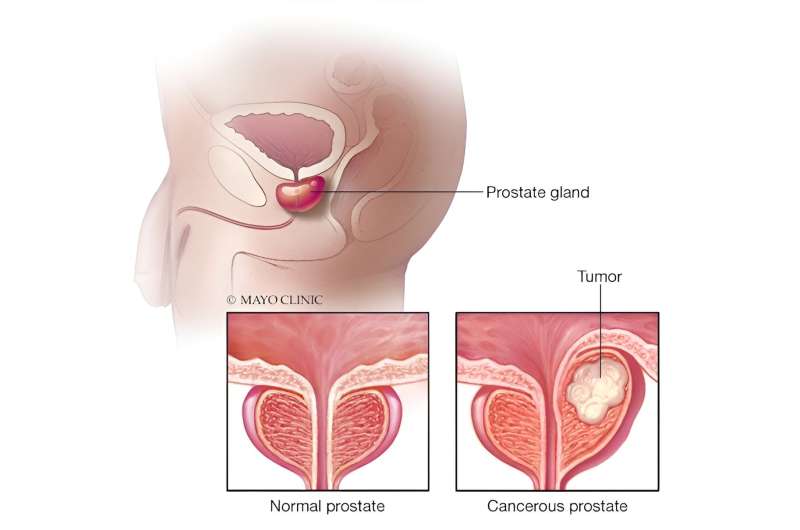This article has been reviewed according to Science X's editorial process and policies. Editors have highlighted the following attributes while ensuring the content's credibility:
fact-checked
trusted source
proofread
Video: Improvements in prostate surgery

There will be approximately 299,010 new cases of prostate cancer diagnosed in 2024, according to the American Cancer Society.
Treatments vary, including chemotherapy, hormone therapy, ablative therapy, immunotherapy, targeted drug therapy, radiation and prostate robotic surgery.
Dr. Matthew Tollefson, a urologist at Mayo Clinic, explains how advancement in robotic prostate surgery is making it easier for patients to get back on their feet.
About one in eight men in the U.S. will be diagnosed with prostate cancer during their lifetime. Many of those patients undergo surgery to get rid of the cancerous tumor.
"Most of the time, prostate cancer is a slower-growing type of tumor," says Dr. Tollefson. "Physically removing it could then cure one from cancer."
Advancements in robotic prostate surgery
He says surgery is a common option for many men, especially if the cancer is contained in the prostate. Medical innovation has improved cancer removal surgeries. Now, there's an upgrade to the robotic prostatectomy procedure.
"Instead of all of the instruments coming in through separate incisions, they come in through a single incision, and the robot is able to then branch out within the abdomen and remove the prostate," explains Dr. Tollefson.
Patients have a faster recovery and reduced pain with the single-port robotic procedure.
Other prostate cancer treatment options can include:
- Radiation therapy.
- Ablative therapies.
- Hormone therapy.
- Chemotherapy.
- Immunotherapy.
- Targeted drug therapy.

















